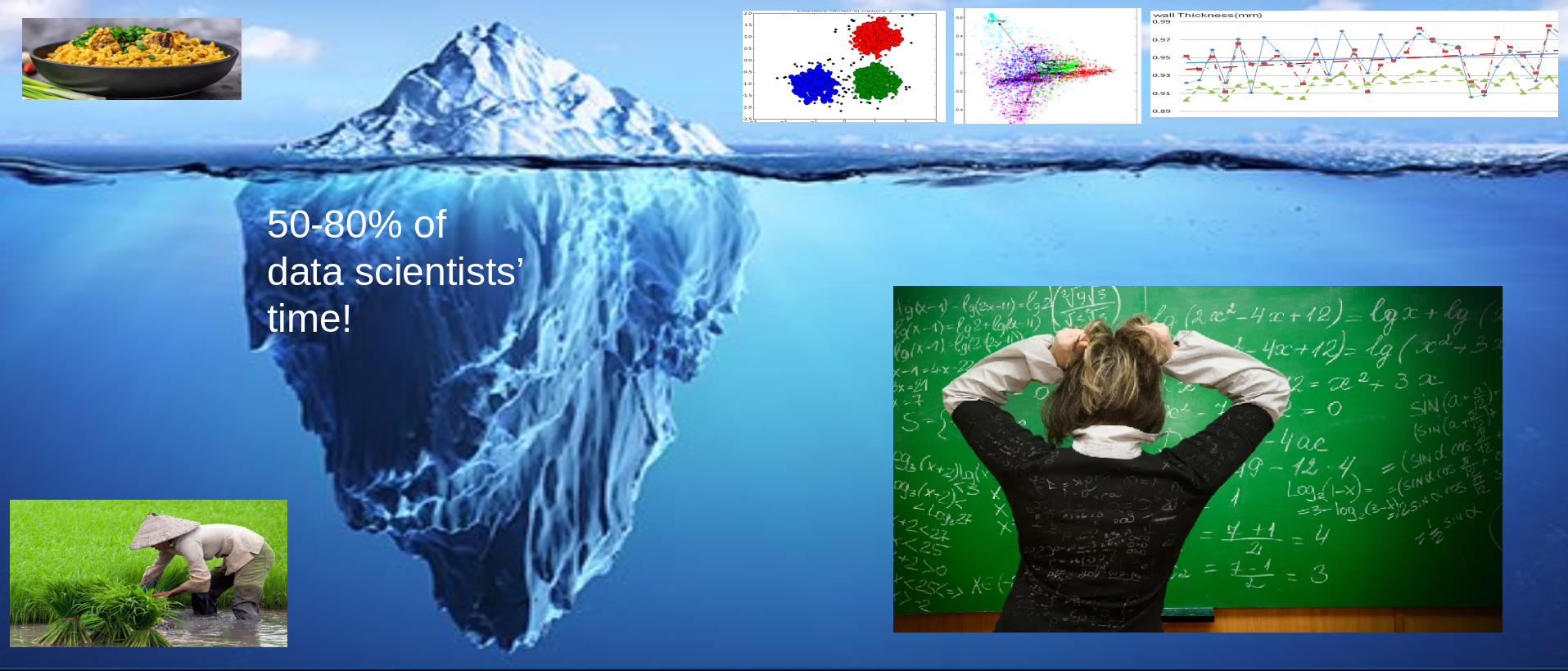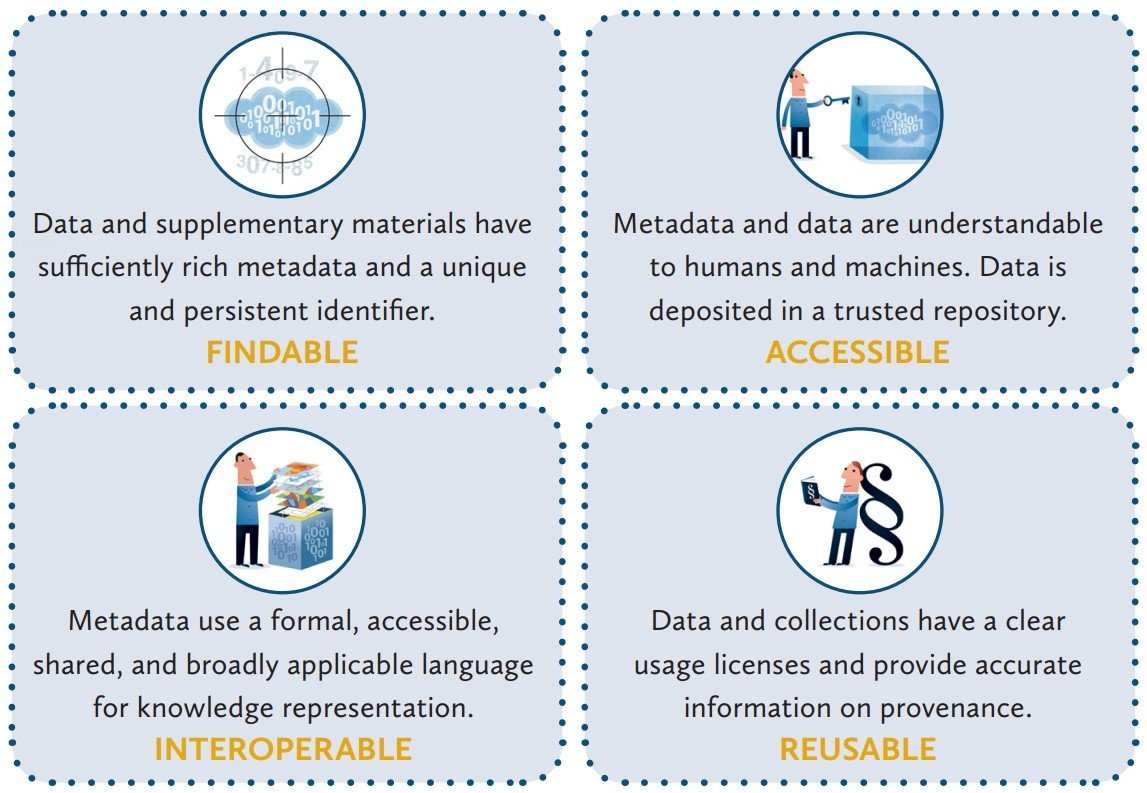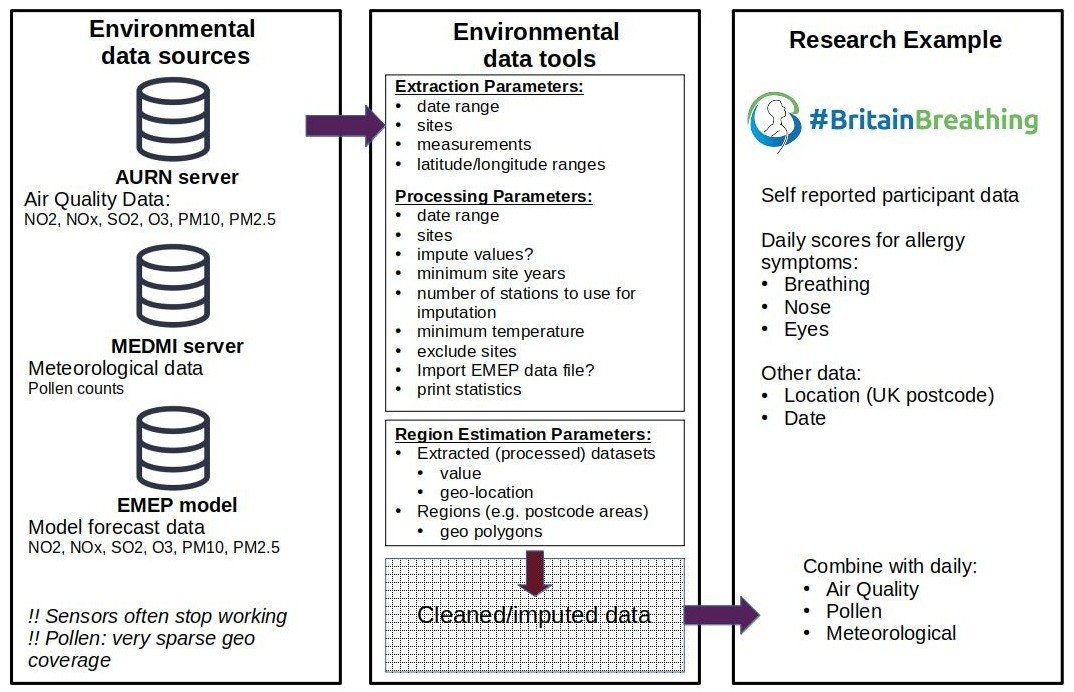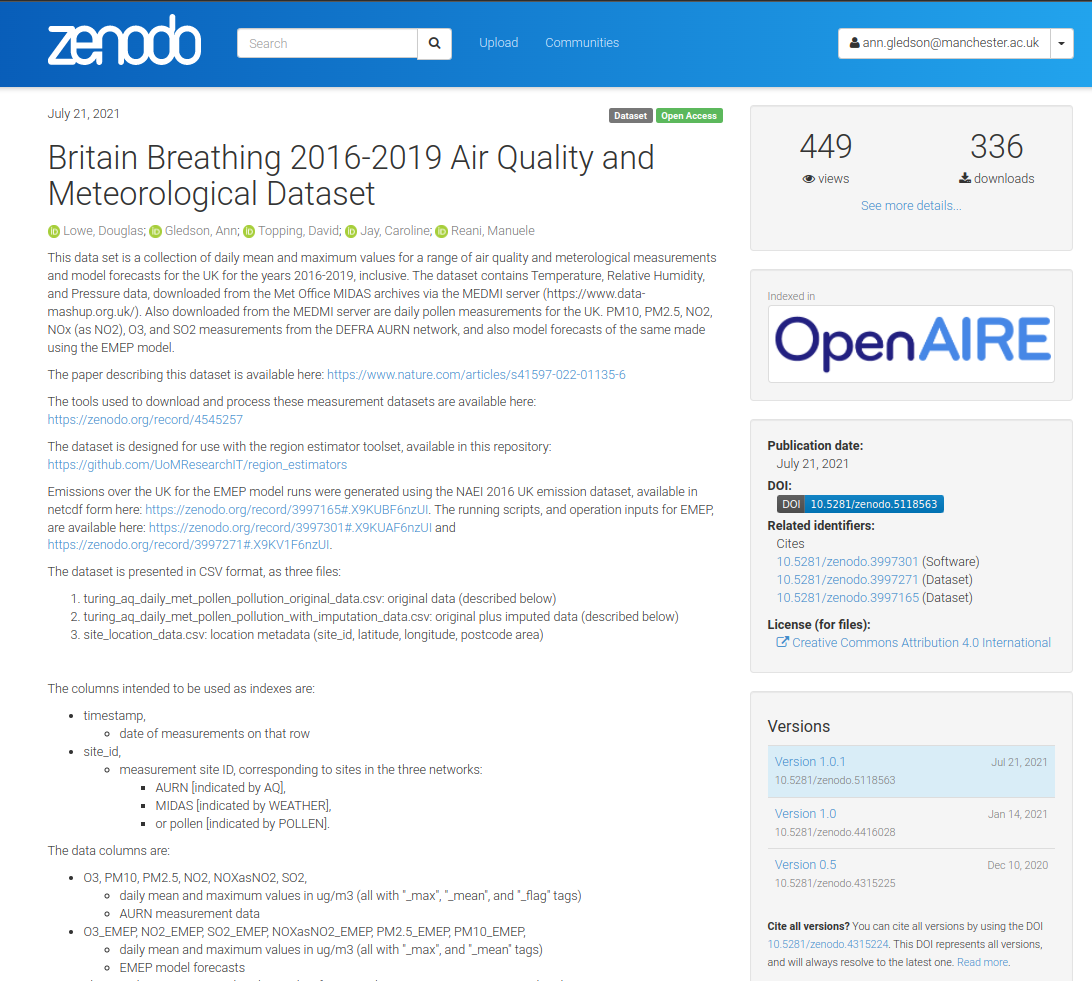FAIR Access to Environment Data (RSE role)
By Ann Gledson
FAIR Access to Environment Data (RSE role)
Facilitating access to data using open sustainable software development methods is an important part of the RSE role. Working on a recent Turing Institute-funded project, RSEs at the University of Manchester created an open-source environmental data-set and tool-set that have been published in the Nature Scientific Data journal. Working on the Digital Solutions Hub, we will be continuing this work, converting a broad range of hub requirements into a set of tools that allow FAIR (Findable, Accessible, Interoperable, Reusable) access to existing and future datasets.









